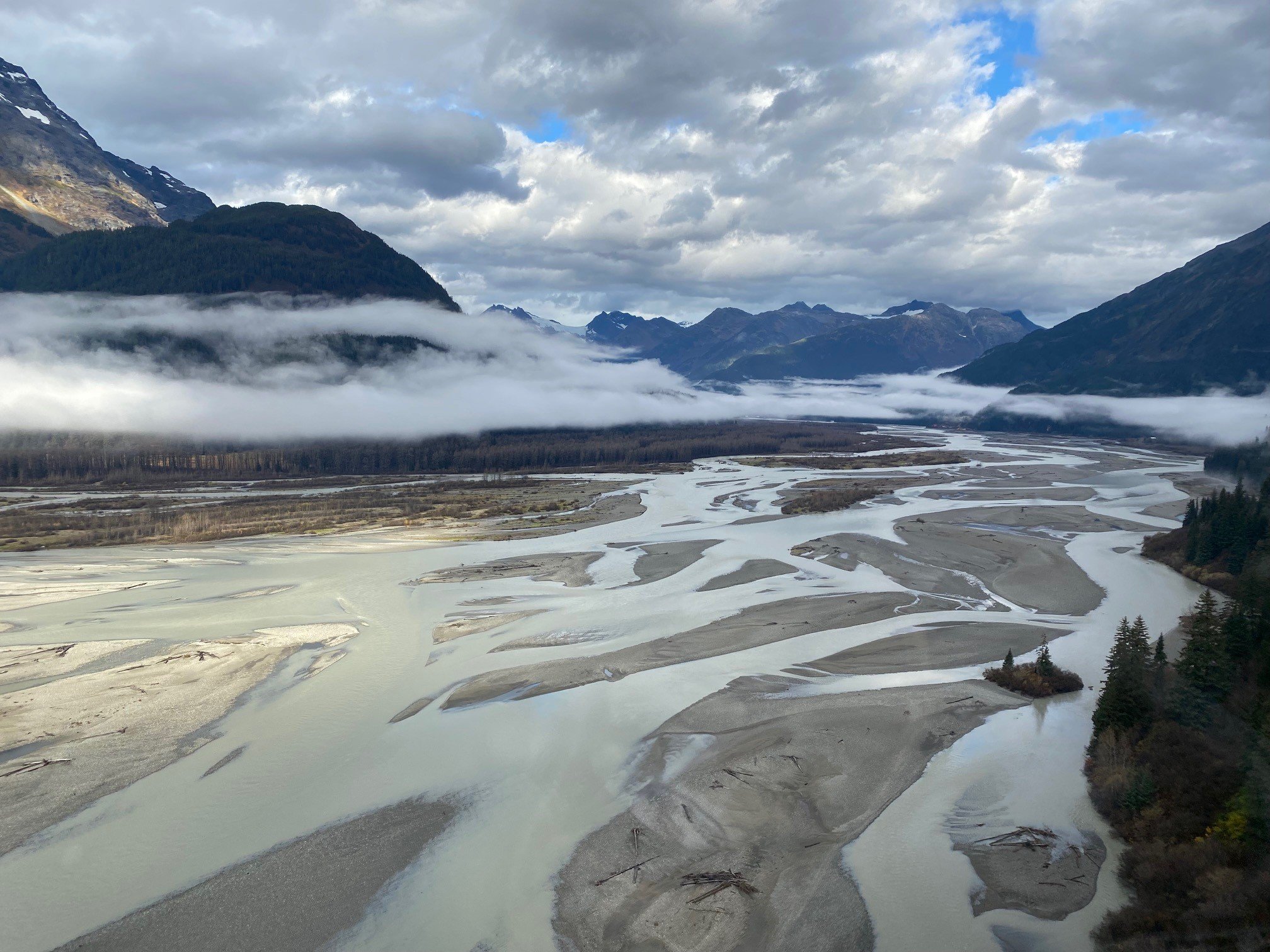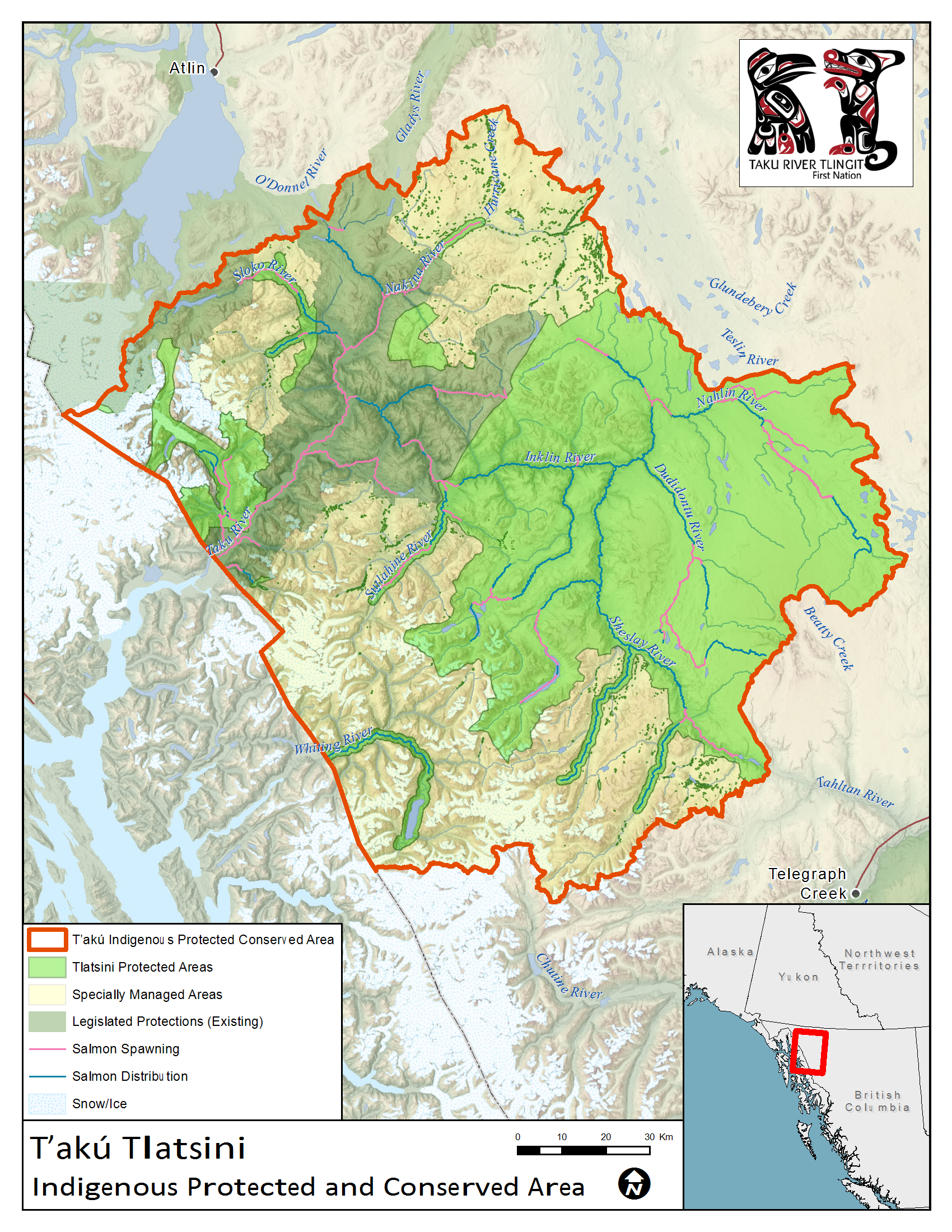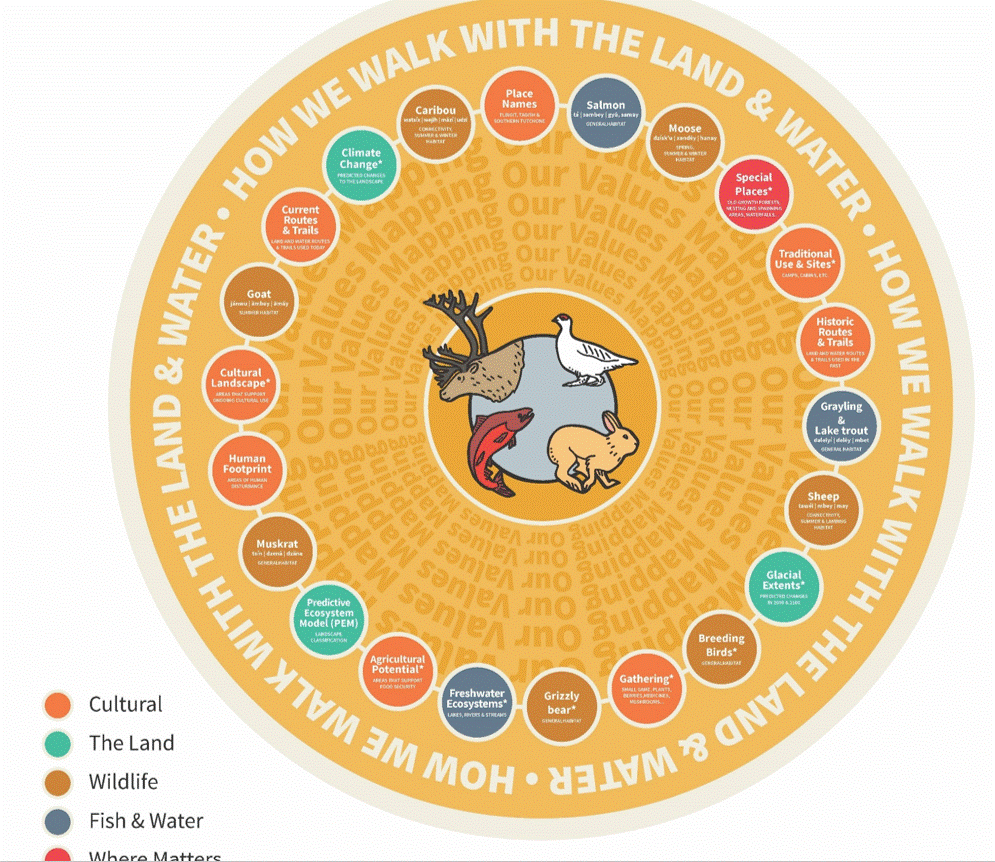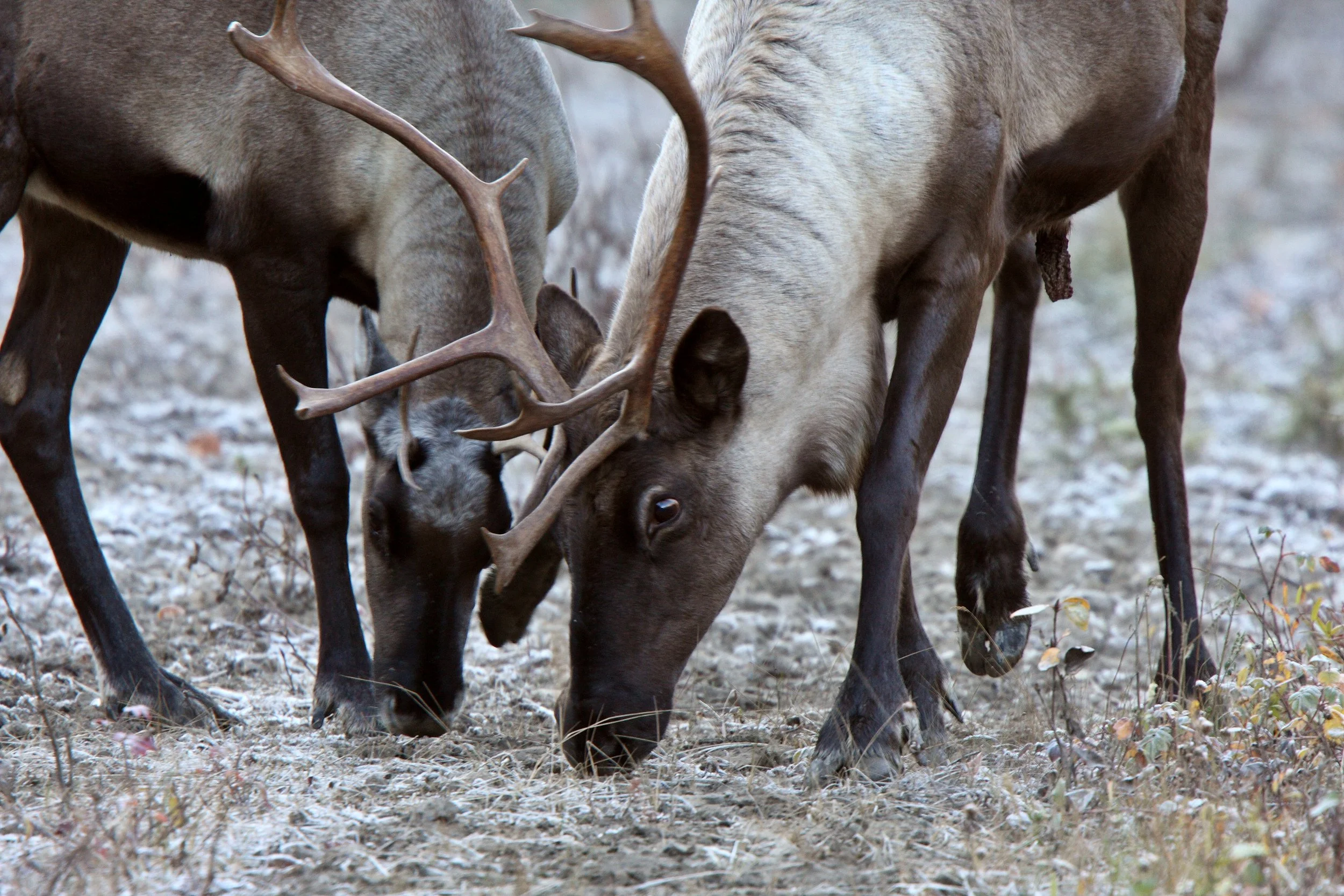
Current Projects
Tlatsini Indigenous Protected and Conserved Areas Initiative, Taku River Tlingit First Nation
Braided Knowledge is providing Project Management and Technical Support to the Taku River Tlingit Lands and Resources Department to advance and achieve the Nation’s Tlatsini Vision for land and water protection and stewardship. This work is the result of generations of Indigenous leadership and knowledge combined with decades of research and community-based work to identify the vision and requirements for ecological and cultural resilience for their vast wilderness territory in northwest British Columbia and southern Yukon.
We are currently focused on achieving Crown recognition of the Taku IPCA. The Taku River is the largest road-inaccessible watershed on the Pacific Coast of North America and represents a globally significant wild salmon system. The Taku River Tlingit envision a suite of protected areas that cover an area larger than Yellowstone National Park and provide the habitats and climate resilience for not only salmon but all wildlife as well and their own cultural landscapes.
How We Walk with the Land and Water
Braided Knowledge is providing Technical Support as the Technical Working Group Lead and Senior Scientist for three First Nations in southern Yukon and northwest British Columbia. “How We Walk” is an indigenous-led land and water planning process bringing together indigenous knowledge and western science to support an planning appoach founded upon cultural resilience, protocols and process.
How We Walk is a collaboration of the Carcross/Tagish First Nation, Kwanlin Dun First Nation and Ta’an Kwach’an Council.
Taku River Tlingit Wildlife Stewardship
The Taku River Tlingit are working to improve the health of wildlife within their territory in northwestern BC. This includes improving wildlife population monitoring and habitat management, including for harvested species like moose and particularly in areas that are accessible to hunters. This also includes greater involvement of the Nation in monitoring and in decision-making about wildlife and habitat stewardship. Braided Knowledge is assisting the Nation in advancing their wildlife goals.
The Taku River Tlingit have worked tirelessly over decades to provide good stewardship. Their cultural resilience depends upon their intimate and sacred relationship to their lands, waters and the resources such as wildlife and salmon that have sustained them since time immemorial. As climate change combines with other human-caused changes and impacts to habitats and populations, advancing indigenous stewardship represents one of our greatest opportunities to support communities, cultures and Nature.
Central Idaho Wolverine & Winter Recreation Monitoring
Braided Knowledge continues to work to advance our knowledge of wolverine ecology and particularly habitat requirements with core study areas in central Idaho and the Yellowstone region.
We previously partnered with federal and state agencies to undertake the largest and most comprehensive research on wolverine responses to winter recreation, and in the process have collected an large body of knowledge on wolverine movements, habitat use and behaviors along with detailed information and mapping of winter recreation in these same areas. The analyses of these data continue.
We are now undertaking new initiatives to monitor wolverines and winter recreation in our central Idaho study area.
These efforts are particularly important as we work towards recovery of the wolverine, which was recently listed as Threatened under the US Endangered Species Act.
Doig River First Nation K’ih Tsaa?dze Tribal Park Conservation Plan
Braided Knowledge is honored to be assisting the Doig River First Nation in British Columbia to complete the planning and designations for their K’ih Tsaa?dze Tribal Park. The Nation declared the Park in 2011 because of its irreplaceable cultural and ecological values. In the face of resource development across the region, K’ih Tsaa?dze is truly a rare and invaluable reprieve for both the Nation and Nature.
Taku River Wild Salmon Climate Change Vulnerability Assessment
We are supporting an effort of the Taku River Tlingit First Nation to understand how climate changes may effect the wild salmon of the Taku River watershed. Working with a diverse project team including experts from the Nation, NGOs, and Academia, the climate change vulnerability analyses are focused on providing insights into how different species and, indeed, different life stages of these species, are differentially vulnerable (or resilient) to expected changes including changes in water temperature and flow. We are integrating place-based approaches - inherently an indigenous perspective - to incorporate how local environment characteristics (e.g., glaciated systems, lake-buffered systems) within different Taku subwatersheds may mitigate or exacerbate the realized effects of climate change on salmon. And, assessing how a large, intact system like the Taku can provide options and therefore resilience to salmon in the face of climate change.





